Chapter: academic.oup.com/edited-volum...
Paper: www.science.org/doi/10.1126/...
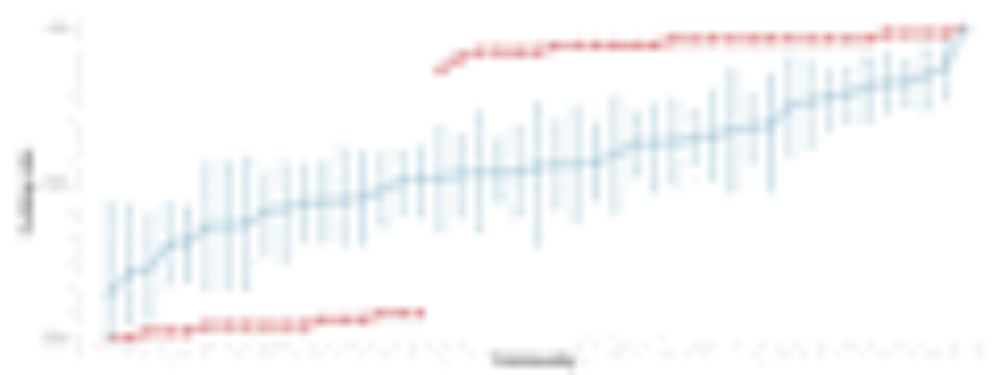
Chapter: academic.oup.com/edited-volum...
Paper: www.science.org/doi/10.1126/...
culturalevolutionsociety.org/news-and-eve...

culturalevolutionsociety.org/news-and-eve...
Earnings effects of moves for couples on the left, singles on the right. Negligible gap between single men and women.

Earnings effects of moves for couples on the left, singles on the right. Negligible gap between single men and women.
www.pnas.org/doi/10.1073/...

@lucasmolleman.bsky.social
www.nature.com/articles/s41...
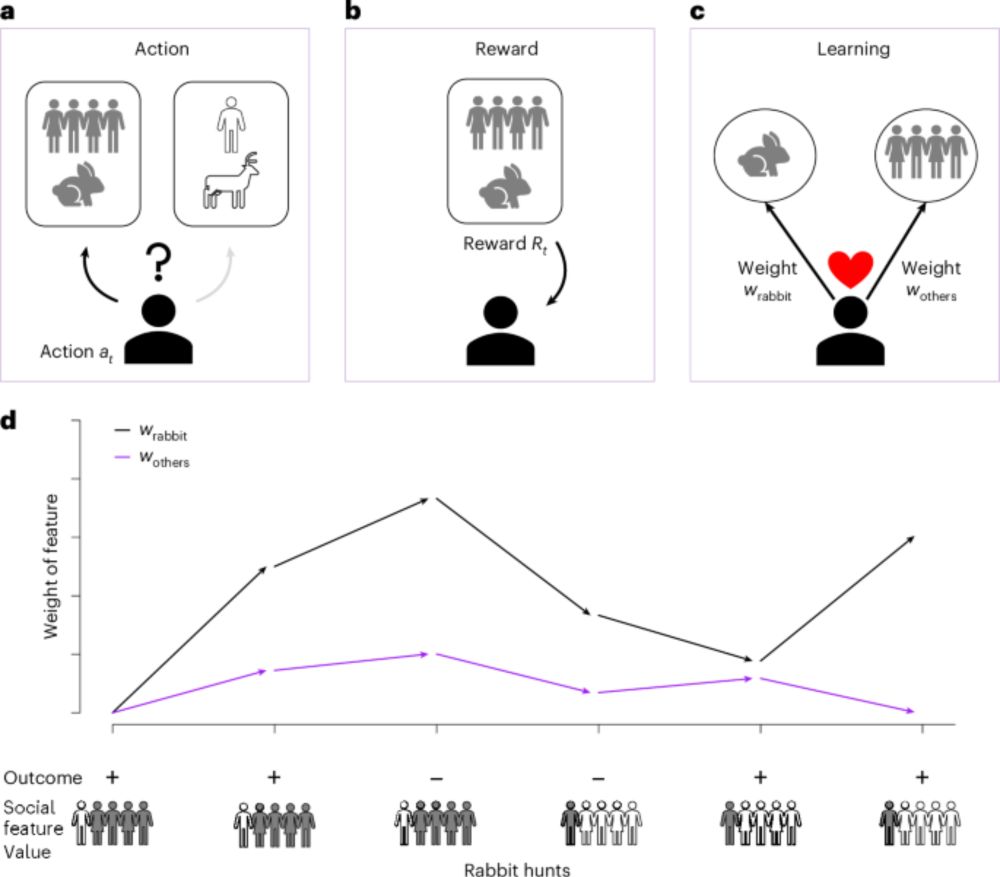
www.nature.com/articles/s41...

www.nature.com/articles/s41...
The model tackles multiple nested/overlapping identities and complex signaling structure. Recovers lots of old results and adds several new ones osf.io/preprints/so...
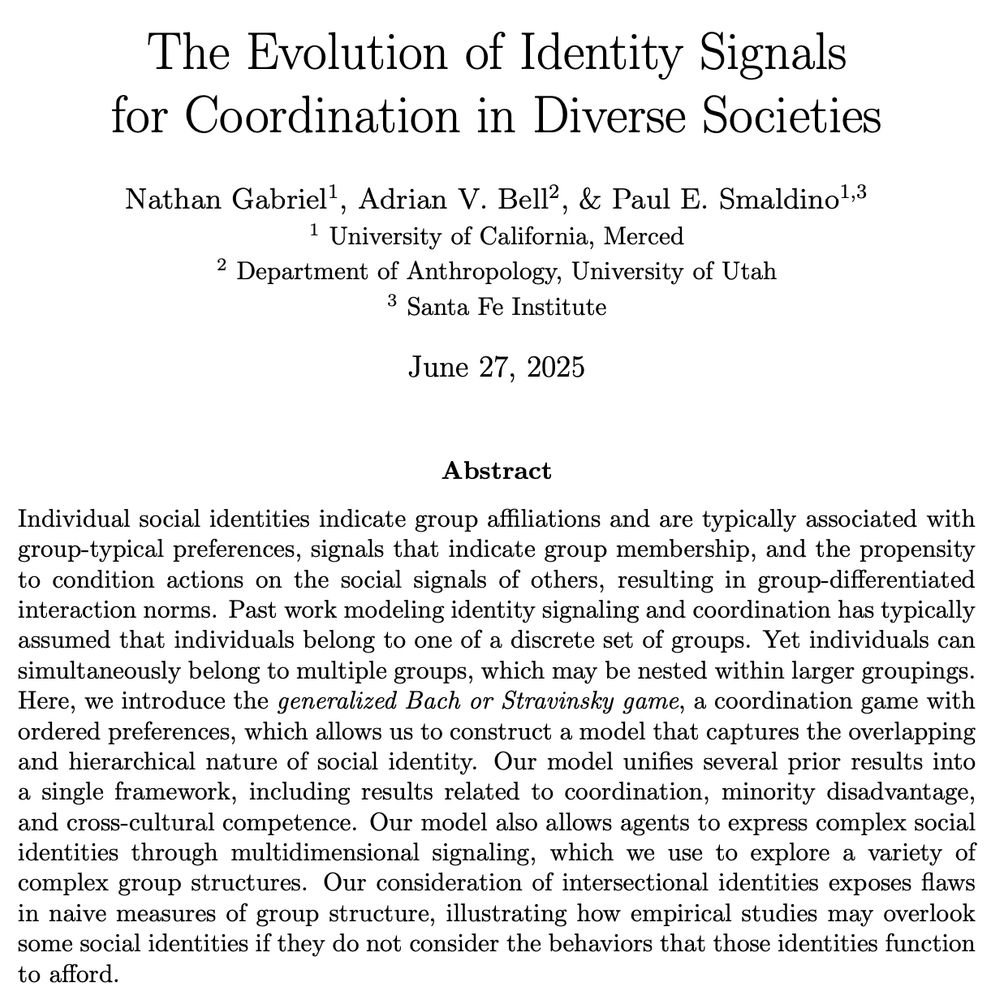
The model tackles multiple nested/overlapping identities and complex signaling structure. Recovers lots of old results and adds several new ones osf.io/preprints/so...
Join us to explore how people learn from each other—and how that drives cultural evolution.
Run experiments, build computational models & collaborate across Europe w. @lucasmolleman.bsky.social
📍 Stockholm
More info: shorturl.at/CY4wk

Join us to explore how people learn from each other—and how that drives cultural evolution.
Run experiments, build computational models & collaborate across Europe w. @lucasmolleman.bsky.social
📍 Stockholm
More info: shorturl.at/CY4wk
⬆️ Human induced warming now at 1.36C
⬆️ Rate of warming now 0.27C / decade
⬆️ Sharp increase in Earth's energy imbalance
⬇️ Remaining 1.5C carbon budget only 130 GtCO2
essd.copernicus.org/...
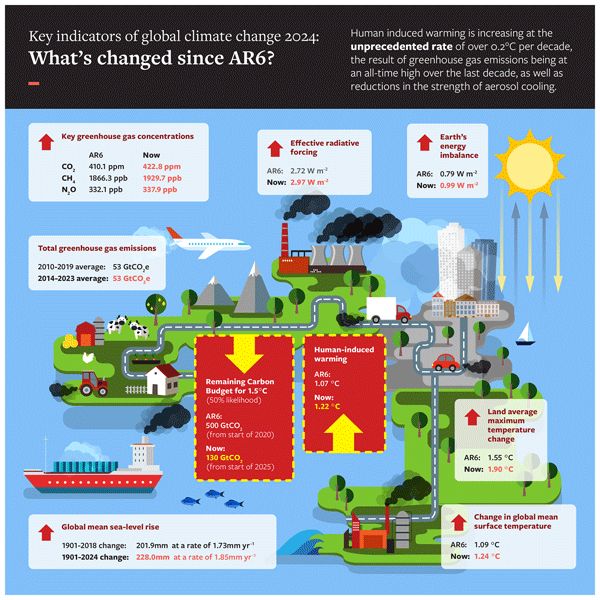
⬆️ Human induced warming now at 1.36C
⬆️ Rate of warming now 0.27C / decade
⬆️ Sharp increase in Earth's energy imbalance
⬇️ Remaining 1.5C carbon budget only 130 GtCO2
essd.copernicus.org/...

My sense over the past six months or so is that chain-of-thought prompting as used in e.g. ChatGPT o.3 improves substantially upon previous systems such as ChatGPT 4.o, at least for certain tasks.
But how revolutionary is it?
ml-site.cdn-apple.com/papers/the-i...
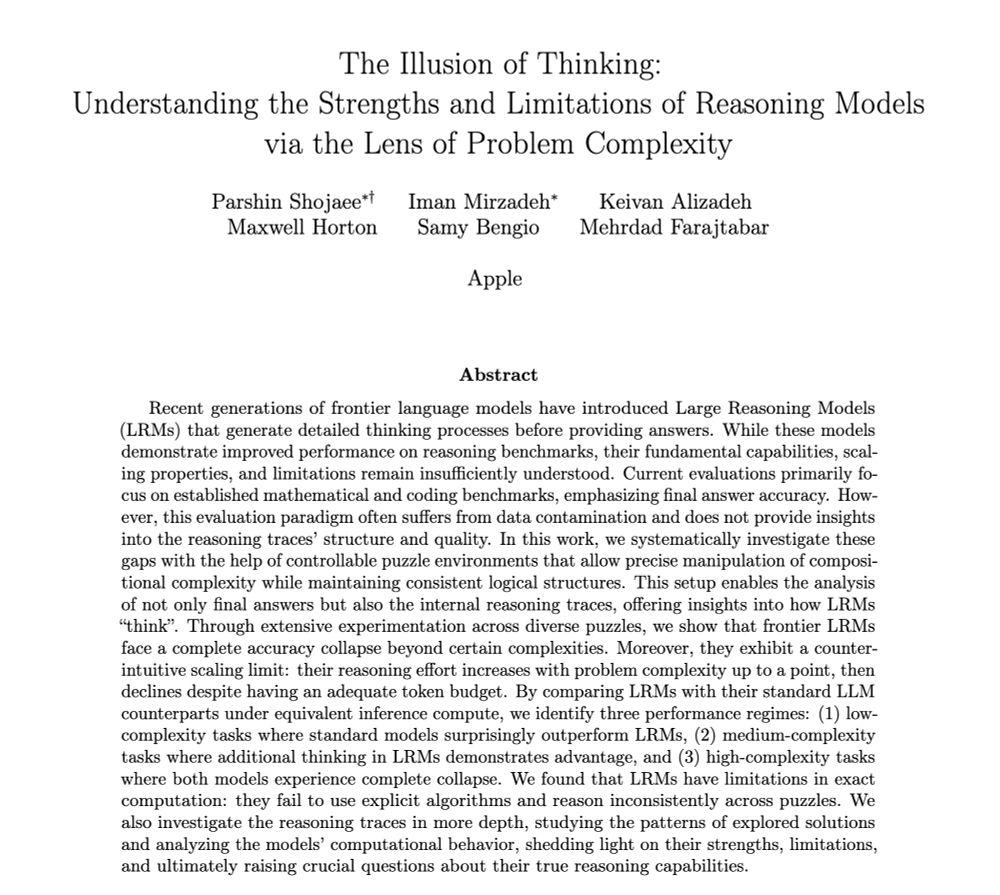
My sense over the past six months or so is that chain-of-thought prompting as used in e.g. ChatGPT o.3 improves substantially upon previous systems such as ChatGPT 4.o, at least for certain tasks.
But how revolutionary is it?
Ungated PDF: johanneshaushofer.com/research
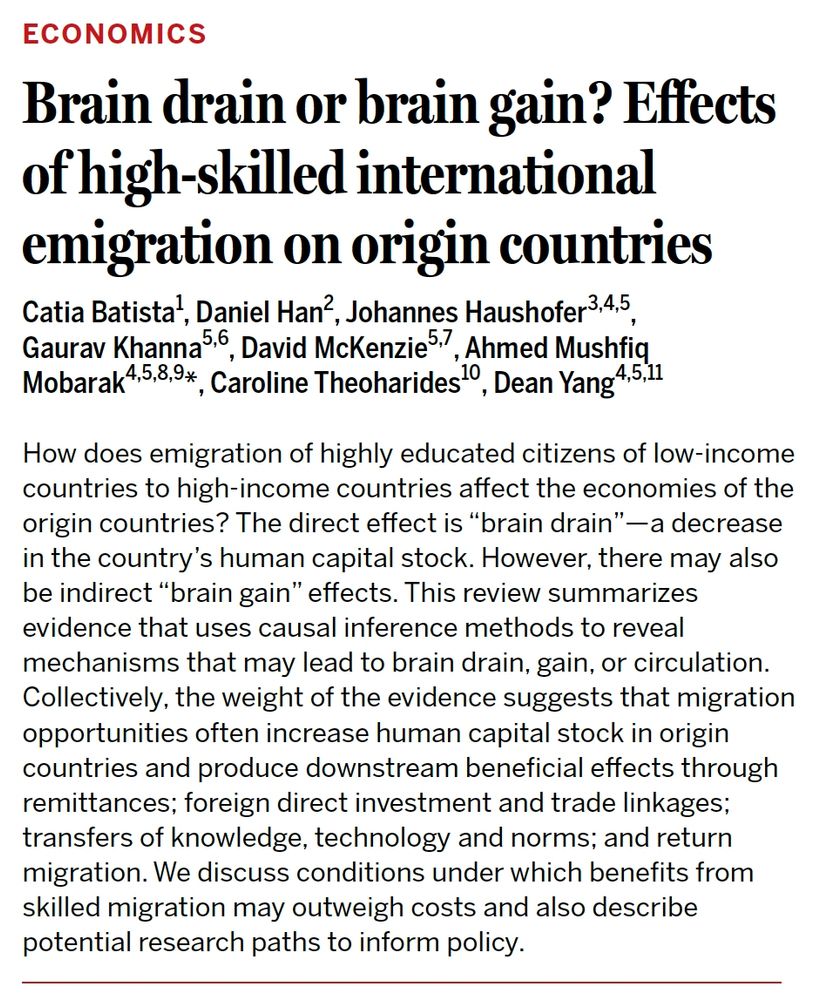
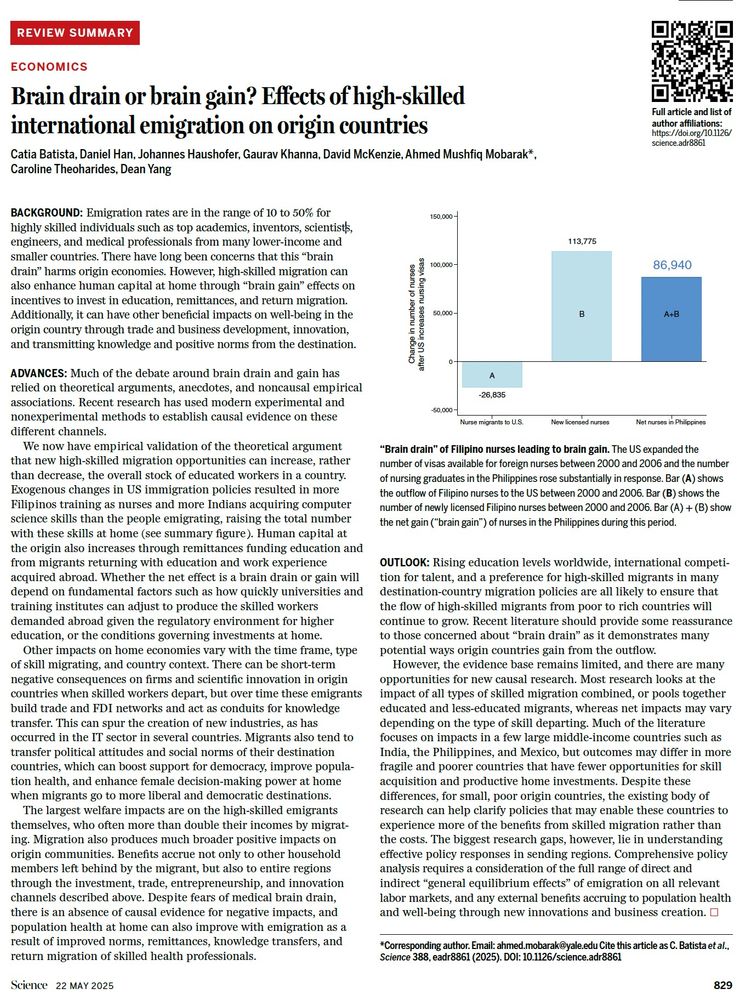
Ungated PDF: johanneshaushofer.com/research
How should LLMs be used in psychology research? 🧵
How should LLMs be used in psychology research? 🧵
www.nytimes.com/2025/02/22/m...

www.nytimes.com/2025/02/22/m...
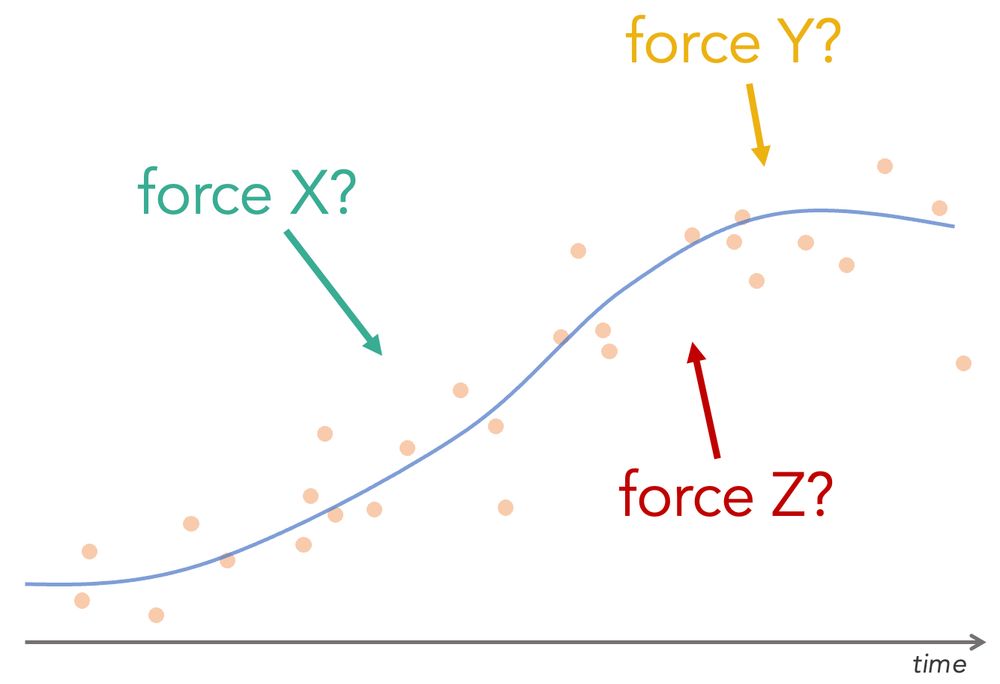
@celbaek.bsky.social Panagiotis Mitkidis @anisha0singh.bsky.social @quinettaphd.bsky.social
@celbaek.bsky.social Panagiotis Mitkidis @anisha0singh.bsky.social @quinettaphd.bsky.social
Yeah, that’s just not the case.
(See: Pete Hegseth among countless others.)
Yeah, that’s just not the case.
(See: Pete Hegseth among countless others.)
Delighted to share our preprint of a chapter co-authored with @thepsychologist.bsky.social @sdnl.bsky.social for the forthcoming book 'Neuroeconomics: Core Topics and Current Directions'!
The neuroeconomics of social influence and contagion
osf.io/preprints/ps...
People copy thoughts, feelings, & actions of those to whom they are connected. Understanding social network structure & function makes it possible to use social contagion to intervene in the world to improve human welfare. www.science.org/doi/10.1126/... 1/

People copy thoughts, feelings, & actions of those to whom they are connected. Understanding social network structure & function makes it possible to use social contagion to intervene in the world to improve human welfare. www.science.org/doi/10.1126/... 1/
Unfortunately, the authors have used their platforms to mislead about the cause for retraction. As they cannot be honest, I'm choosing to be fully open and transparent.
#metascience
joebakcoleman.com/blog/2024/pr...
Unfortunately, the authors have used their platforms to mislead about the cause for retraction. As they cannot be honest, I'm choosing to be fully open and transparent.
#metascience
joebakcoleman.com/blog/2024/pr...
👉 journals.sagepub.com/doi/10.1177/...
Thread coming soon, but get all the details already in my talk tomorrow at #SPSP2024 (Thur. 8th, 9.45 am; Culture Pre-Conference).
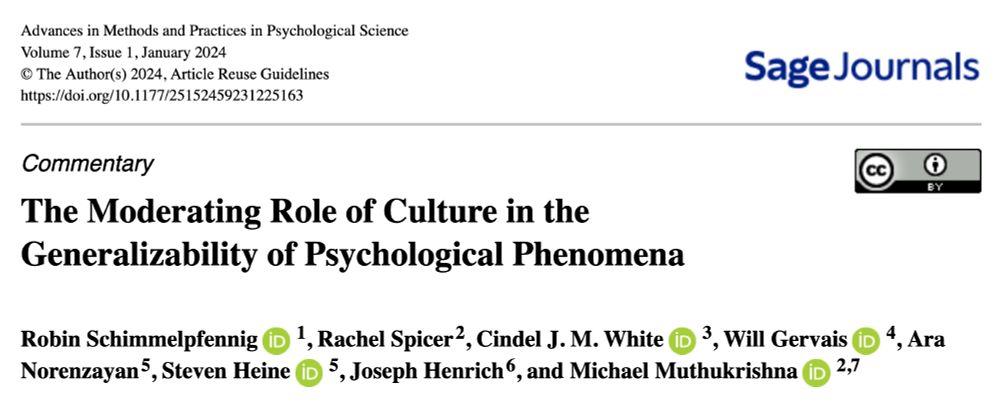
👉 journals.sagepub.com/doi/10.1177/...
Thread coming soon, but get all the details already in my talk tomorrow at #SPSP2024 (Thur. 8th, 9.45 am; Culture Pre-Conference).
buff.ly/4bfm7uH

buff.ly/4bfm7uH

